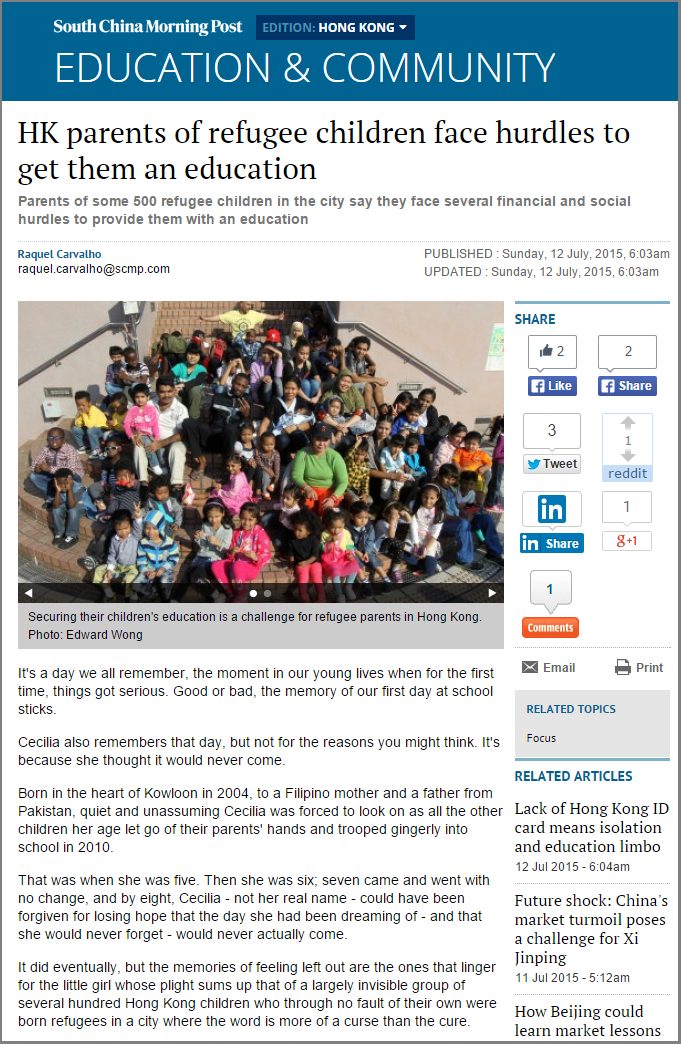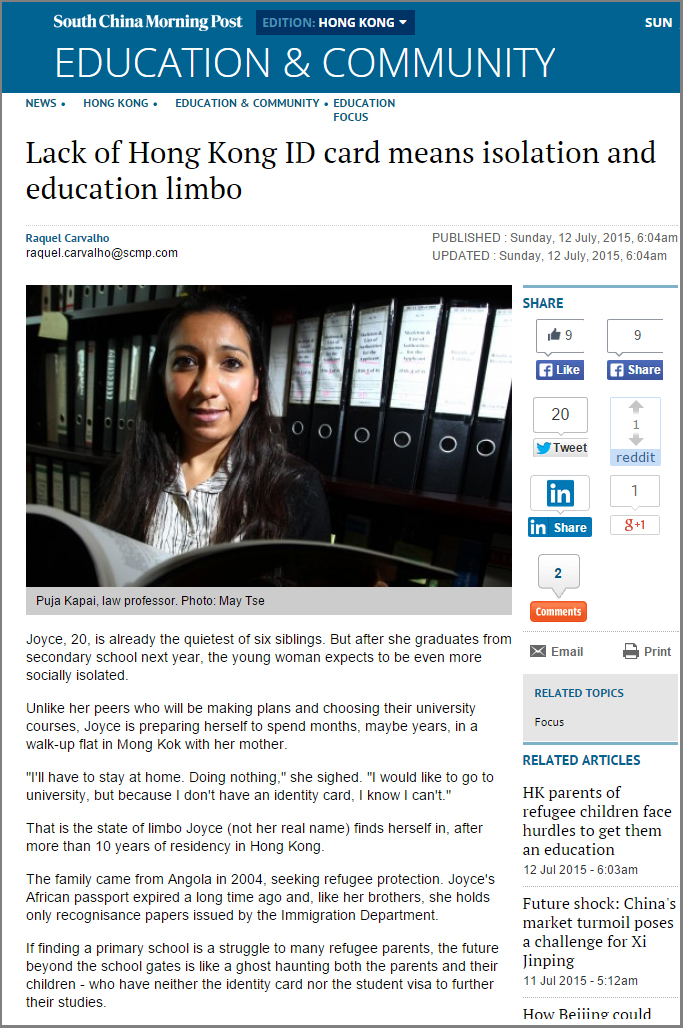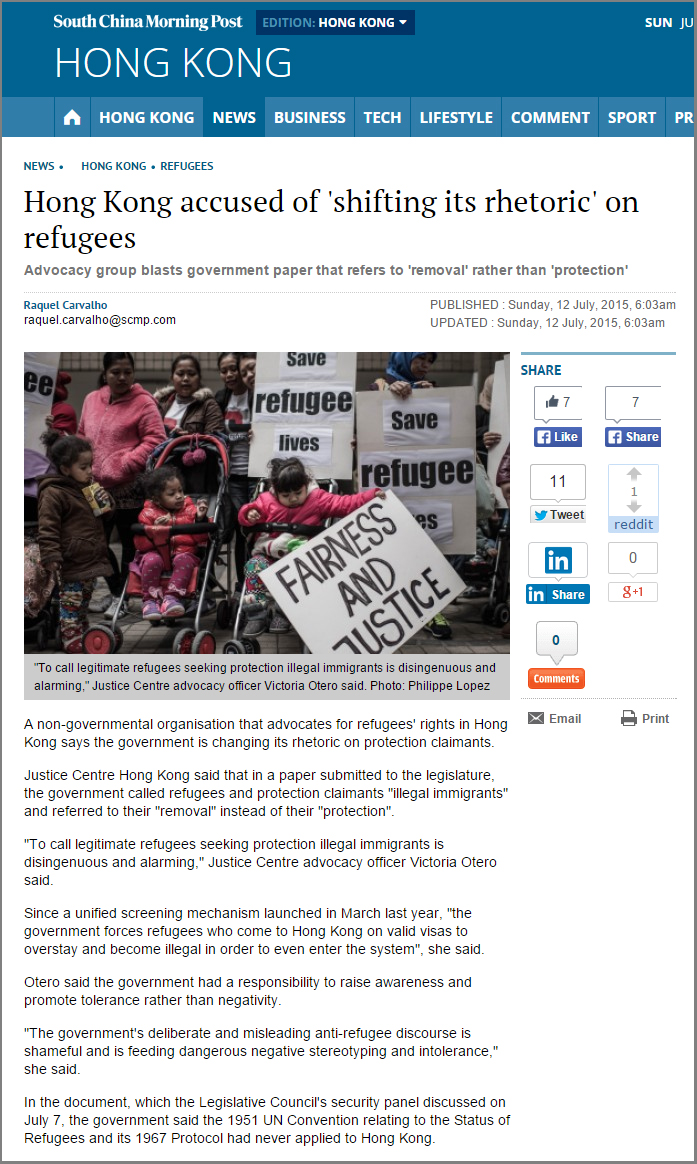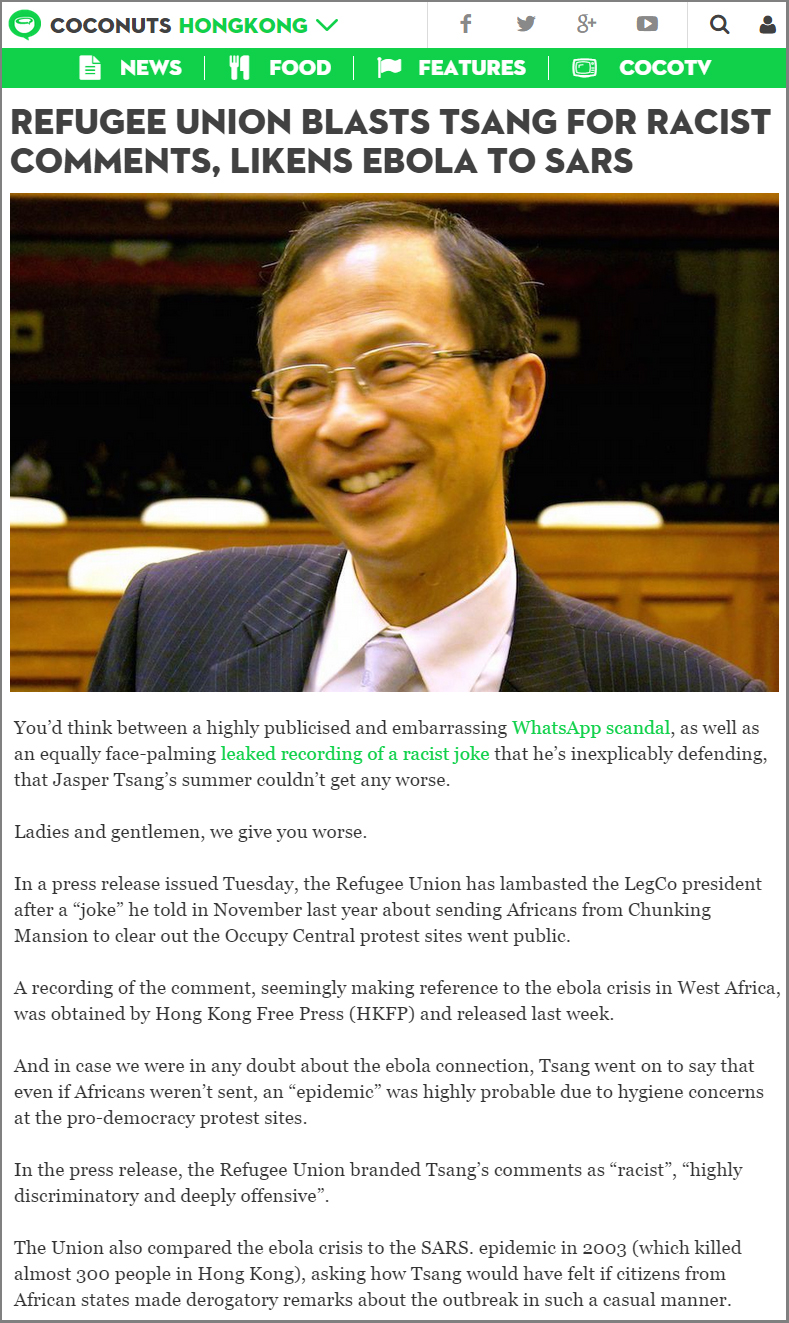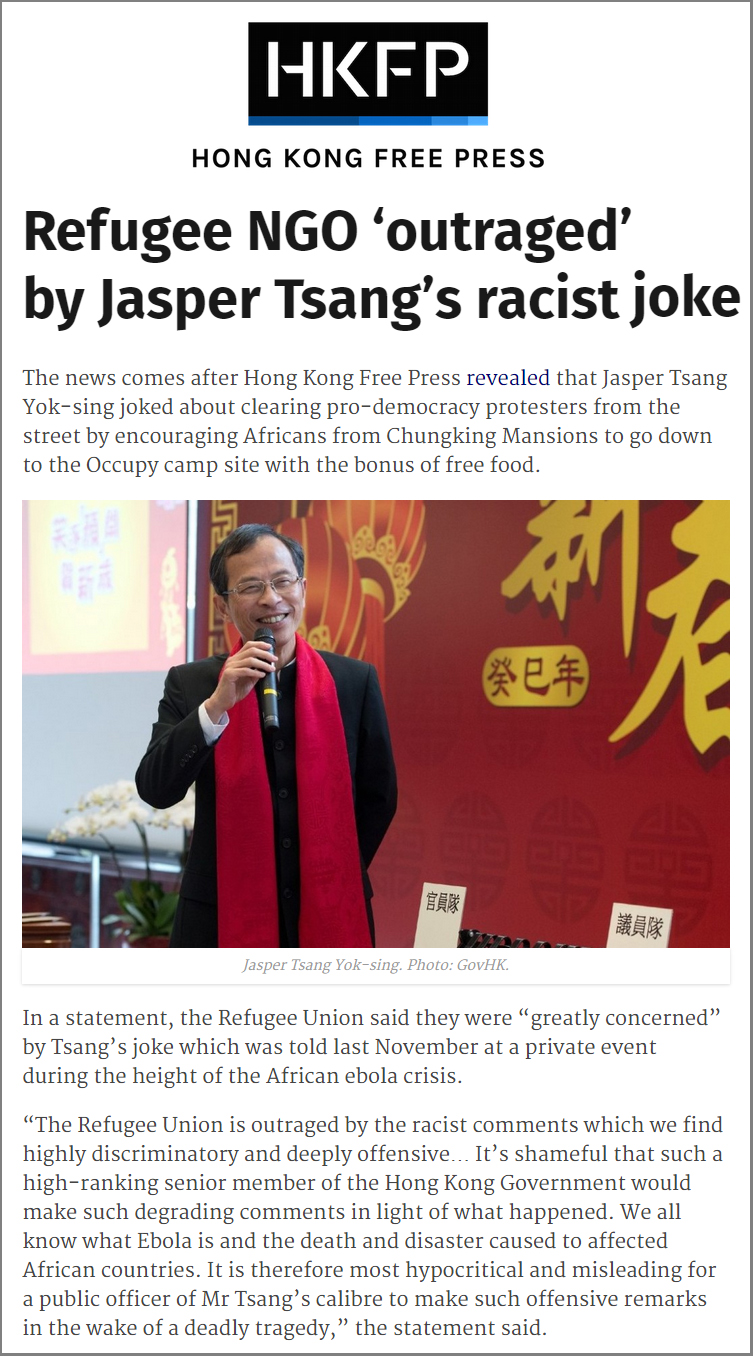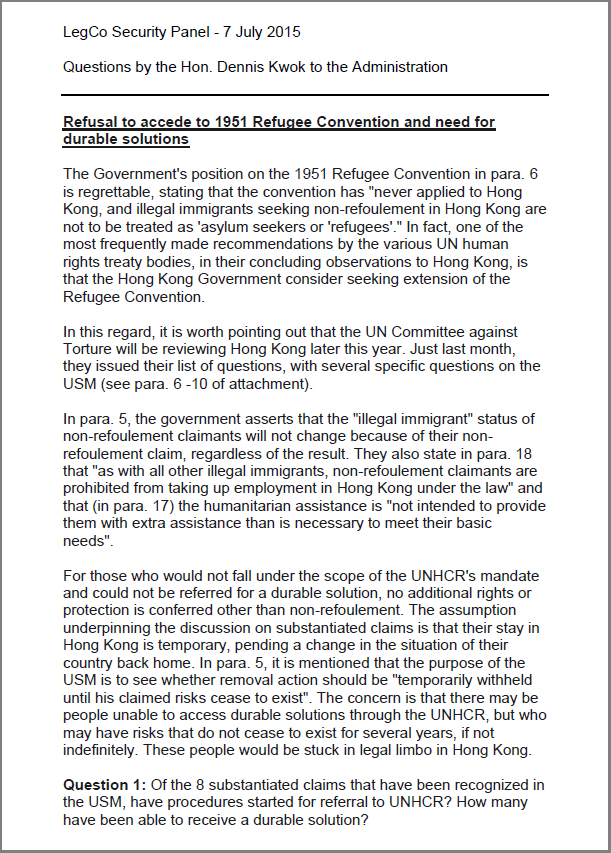Archive
Enrollment deadlines force refugee parents to struggle
Jul 16th, 2015 | Personal Experiences, Schooling, VF Opinion | Comment
Financial stress surges in July for refugee parents forced to meet school enrollment deadlines for their children. An African mother explains her predicament, “Hong Kong says it provides an education for refugee children, but it’s misleading. If they said, ‘Here is the school, here are the books and uniform, go to school’, then it would be true. But we must find thousands of dollars or our children stay home.”
This mother was recognized as a refugee in Hong Kong, which makes no difference in the clash with the bureaucratic mindset of Hong Kong Government. Last year, Abby (not her real name) only had two of three children in school because she was unable to raise enough money. “I home-schooled my youngest daughter because the donor offered only enough for two”.
According to a recent report by the South China Morning Post, among 9,940 individuals seeking asylum in Hong Kong, 504 are minors and 269 were born in Hong Kong. While an unknown number is below kindergarten age, the majority must attend nine years of compulsory schooling, six in primary school and three in junior secondary school. Most also attend 3 years of kindergarten which is essential to learn Cantonese for the higher grades.
With pressure to raise money in a hurry, Abby approached the UNHCR for a US$ 1,000 advance to pay for school books, uniform, shoes and enrolment fees required by the primary school. Despite a worldwide annual budget of US$ 5.3 billion, the United Nations refugee agency turned the desperate mother away empty handed. No effort was made to introduce her to a private donor either.
“Only mothers know how much they suffer for their children,” Abby remarked, “I have to give them education, but I cannot work and I have no money. I went to several charities and they said they cannot help. What am I supposed to do?”
Between July and December, refugee parents desperately need to raise money to pay for school costs (including tuition fees for kindergartens) that will be refunded in December or January by the Student Financial Assistance Agency (SFAA). The parents are not begging for donations, but for bridging loans essentially guaranteed by the SFAA, as refunds may be made to donors’ accounts. The reason for this delay is questionable. It is a huge challenge to find donors. The process again raises doubts about policies that influence refugees’ mental health and enforce precarious livelihoods.
It is indeed unreasonable that the parents of refugee children are subjected to the annual (demeaning) routine of begging for cash to comply with the Education Bureau’s payment policies. Vision First urges the government to have SFAA liaise directly with the school to either release the funds upon enrollment in July, or issue wavers for approved refugee students. Similar arrangements are made by the Hospital Authority that does not require refugee to prepay medical costs.
Residents might find it acceptable to collect SFAA grants 4 to 5 months after school starts, but it is unfair for refugee parents who are prohibited from working, receive insufficient welfare assistance and cannot avail themselves of support from wider family, social and charitable networks.
If education is the right of every child, irrespective of immigration status, then Hong Kong Government should refrain from turning it into another deterrent mechanism that “drives refugees crazy”, as Abby put it.
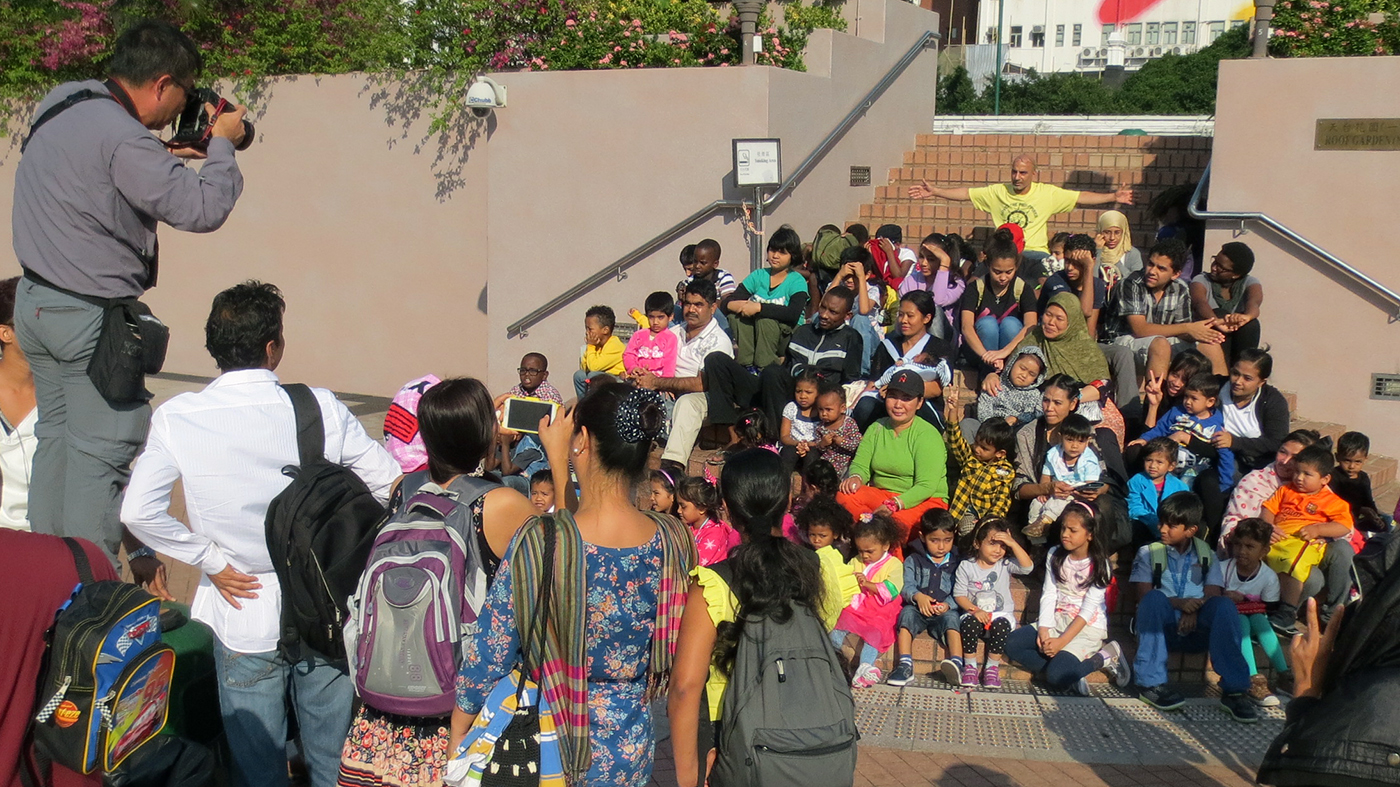
Eliminating violence in the securitization of refugee welfare
Jul 15th, 2015 | Advocacy, Crime, VF Opinion, Welfare | Comment
Vision First reported the case of a refugees in a wheelchair allegedly assaulted outside the premises of the service provider for refugees. While perhaps an isolated case, it nonetheless raises disturbing questions about the unfortunate securitization of refugee services.
First, “I came to Hong Kong as a victim of violence and here I suffer violence again,” sighed this distraught refugee as he reported being roughed up by security guards. A question may be raised as to the need for such a visible display of uniformed security guards in a setting where ‘humanitarian’ services are offered to people whose motivation for fleeing abroad relates to similar displays of an ostensible monopoly of violence. This refugee’s words brings to light the harsh confinement, subjugation and control of an underclass of 10,000 refugees, as well as what appears to be an inadequate understanding of refugee vulnerability.
Second, such an episode brings to light again questions about inadequate assistance. This refugee suffers medical conditions deemed worsened by his accommodation. And yet alternatives were not promptly offered. Behind the confrontations between case workers and refugees, behind the arguments over low assistance and high rent, and behind the swelling hatred stoked by the Hong Kong Government’s ‘humanitarian assistance’ lies the root of the problem.
Third, most evidently, if the refugee had indeed been given an appointment, why was he denied entry for hours? A structural dysfunctionality seems to exists on which Dr. Martin Luther King’s universal observation – interestingly written from inside a prison cell – may shed some light: “An unjust law is a code that a numerical or power majority group compels a minority group to obey, but does not make binding on itself. This is difference made legal.”
A refugee advocate interpreted such injustice, “I was told to find a room for 1500$, but my case officer knows it is impossible. If it were possible, why doesn’t he find it for me?” Arguably, the distribution of humanitarian assistance achieves the exact opposite of its stated objective. While it does little to prevent destitution, it dehumanizingly labels refugees as a burdensome, problematic and overly-demanding group that fails to appreciate the compassionate assistance and ostensible effort put in their care.
Faced by daily displays of emotional refugees, even security guards may lose the little empathy they had, addressing everyone with unsympathetic indifference, as tempers reach boiling point. An outspoken refugee who witnessed the wheelchair incident revealed that “The police had arrived. He was restrained and placed on the wheelchair. It was embarrassing to be a refugee. Anyone outside would see him and say ‘Refugees are crazy!’”
Fourth, it appears obvious that overly dehumanizing conditions can be either interiorized or resisted by refugees. A refugee advocate explained, “We should find a smarter way to solve our problems without giving people the opportunity to think that refugees are crazy. As refugees we should do something smart, something beautiful. Any injustice is an injustice, but it is also an opportunity for us to show it to the public.”
His words carried wisdom gained through years of imposed hardship, “We have to cure the disease, not cure the symptoms.” Focus ought to be drawn on the general context, rather than the outcome of individual behaviour, whether it is restrained and submissive, or not.
Vision First vigorously wages non-violence against social injustice, especially when sanctioned by state power in the unjust oppression of the most vulnerable in society, irrespective of immigration status.
An onerous corollary is our duty to expose and eliminate any form of violence in what, as a fifth point, can be said to emerge as the ongoing securitization of refugee welfare, manifested in the slums, food distribution, detention, criminal prosecutions, and manhandling of refugees.
Lastly, would Social Welfare Department staff shoved and pushed protesting refugees? Would the SWD condone such unwarranted conduct by its own security guards?
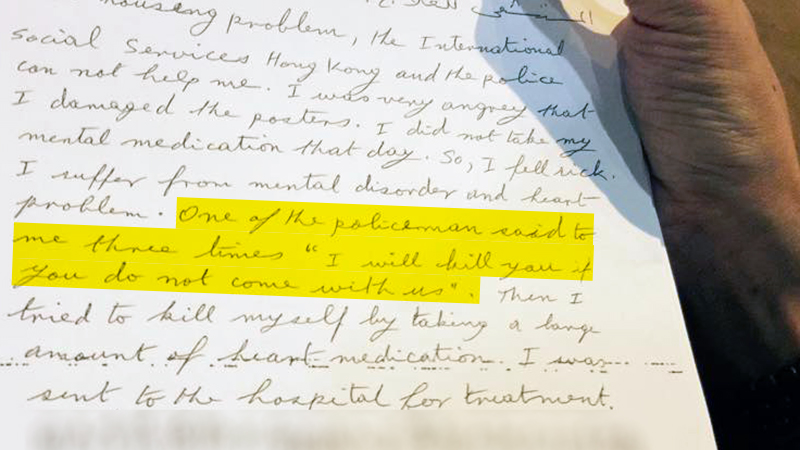
HK parents of refugee children face hurdles to get them an education
Jul 12th, 2015 | Advocacy, Personal Experiences, Rejection, Schooling | Comment
Lack of Hong Kong ID card means isolation and education limbo
Jul 12th, 2015 | Immigration, Media, Personal Experiences, Rejection | Comment
Hong Kong accused of ‘shifting its rhetoric’ on refugees
Jul 12th, 2015 | Immigration, Media, Rejection | Comment
Refugee Union blasts Tsang for racist comments
Jul 10th, 2015 | Government, Media, Racism, Refugee Community | Comment
Refugee NGO ‘outraged’ by Jasper Tsang’s racist joke
Jul 10th, 2015 | Media, Refugee Community | Comment
Are hungry refugees denied food coupons?
Jul 9th, 2015 | Food, Personal Experiences, Welfare | Comment
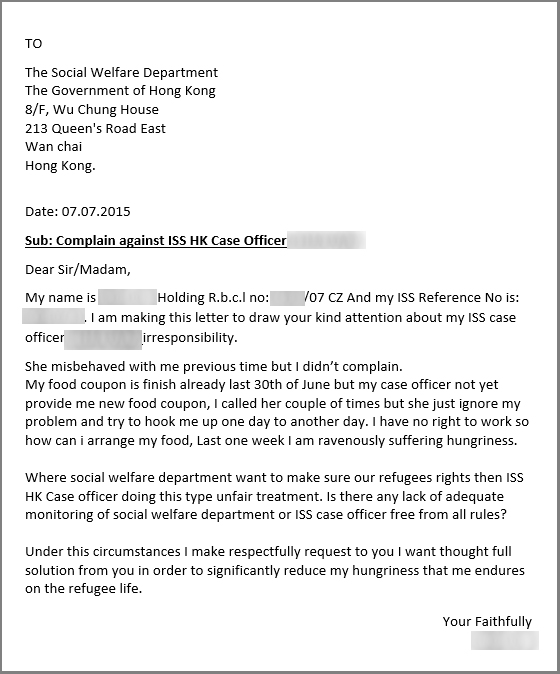
Refugee Union complaint letter to lawmaker Jasper Tsang
Jul 9th, 2015 | Government, Media, Refugee Community | Comment
Lawmaker Jasper Tsang secretly recorded telling racist joke about Africans
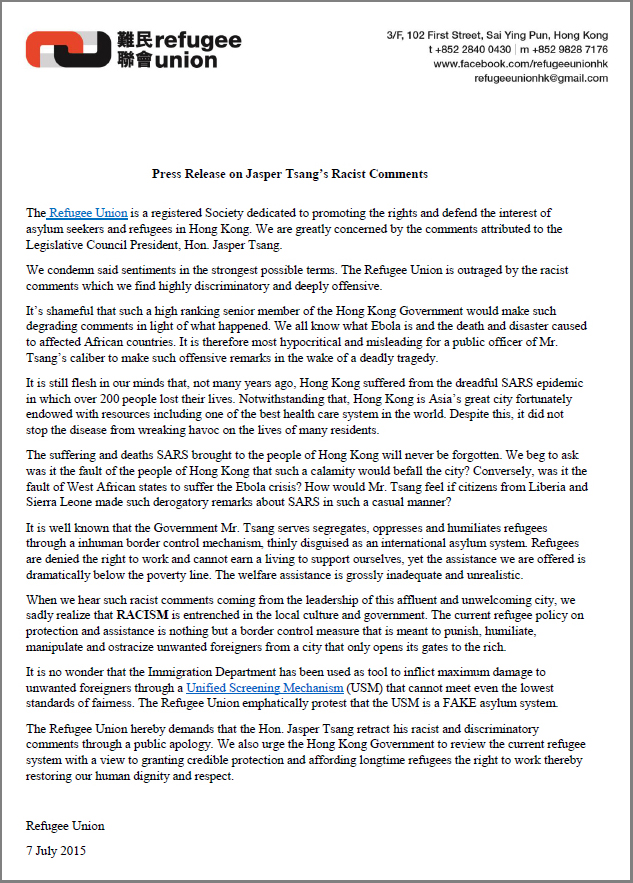
Lawmaker Dennis Kwok questions to Legco Security Panel
Jul 9th, 2015 | Government, Immigration, Rejection | Comment


